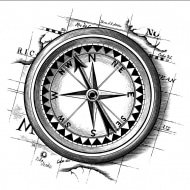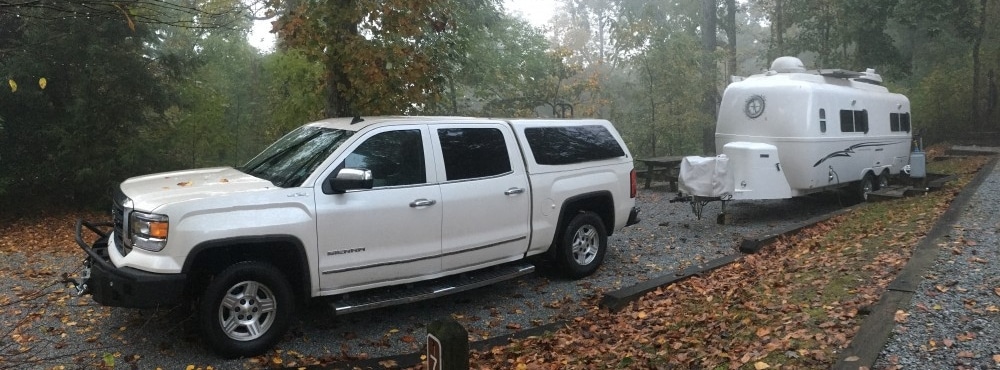-
Posts
3,296 -
Joined
-
Last visited
-
Days Won
170
Everything posted by ScubaRx
-

Friction Hinges - Lippert - Another quick mod.
ScubaRx replied to Ty J's topic in Ollie Modifications
@MAX Burner After seeing and operating your door at Q a few weeks ago, I’m convinced it would take a 40 mph wind to move the door and equally convinced it would never be slammed or jerked out of your hand by less than hurricane force winds. Another owner showed up the day after you left with an uninstalled set of these hinges. They were so tight I could not open them with my hands. @jd1923 I agree with your assessment about the lack of holes in one half of the hinge. -

Newbies taking the plunge - Are we missing anything
ScubaRx replied to Dennis and Melissa's topic in General Discussion
Those are nice suspenders. But will they hold your britches up? -
When we added our BB Lithium batteries a couple of years ago I also replaced the PD4045 45 Amp charger that was installed in our Hull #050 back in 2014. I have been satisfied that it is doing a good job for us. When the BB’s voltage drops and it is in bulk mode our Blue Sky IPN Pro indicates it is delivering 43+ amps to the batteries.
-

The Gaither Tire Jack and Your Low-Back....
ScubaRx replied to MAX Burner's topic in Mechanical & Technical Tips
I built this gadget to lift the 75 pound wheel and tire on and off the trailer. I couldn’t come close to putting a mounted tire onto the hub. With this thing, even Tali can take them off and remount them. I built it for under $50. -
We’ve had the exact same model Dometic 3-way fridge in both of our Oliver’s since 2008. We have never experienced an altitude issue in either of them. Ninety percent of the time thy have run on propane. I suppose the longest boon-docking run for us was in 2019 on a 15000 mile trip to Alaska.
-
We got 7 years out of the original AGM’s that came in Hull #050. At home it was always plugged in and on the road the solar took care of it, always returning them to full charge everyday. I would never turn any of the chargers off.
-

Removing Oliver Logo and Attaching a Replacement Graphic...
ScubaRx replied to MAX Burner's topic in Ollie Modifications
Now that looks great. -

Quartzsite 2024 - Dome Rock Fiberglass Gathering
ScubaRx replied to Mountainman198's topic in Events & Rallies
Hey, I resemble that remark! -

Show us your furry traveling companions..............
ScubaRx replied to Ollie-Haus's topic in General Discussion
I got to meet both Magnus and Oscar in Q. They are the coolest dogs. -
I’ve had four different tow vehicles. Finally found the one that works for us. @HDRider thanks for doing this but please list which model trailer the owner is towing in your results.
-
The problem you and I and all the early owners are always going to have is the rear inset and cover are too small to accept a tire like those that originally came with our trailer. Now that they’ve gone down to a 15” wheel as standard (WTH is up with that?) and if you’re interested in going to a smaller wheel and tire the spare probably would fit under the cover. I wish 18” tires would fit the trailer, then the tires on the 3500 Silverado and the Oliver could interchange.
-

Calyx Institute Internet - Unlimited hotspot
ScubaRx replied to shhQuiet's topic in General Discussion
@Rivernerd is a retired attorney. I suspect he knows what’s up. -
In Hull #050 it is a 3” bathroom vent with the two cabin vents being 4”.
-
Are coming to the rally as usual? If so, and it is still not repaired, I will personally take care of it for you. We might just make it a ‘how to’ demo for the group to watch and learn from. We can do it down at the Buckeye pavilion. Let me know.
-
I believe it is 43 pound/feet.
-

Quartzsite 2024 - Dome Rock Fiberglass Gathering
ScubaRx replied to Mountainman198's topic in Events & Rallies
All the cool kids will be at Dome Rock. We are at 33.64345° N, 114.30113° W. -
I think all of this is acceptable. We just spent 4 days in sub freezing temps including a cold night on the I-210 bridge 140 feet above Lake Charles in Louisiana. I don’t recommend traveling with zero water in the fresh tank. We started out with clear water lines and nothing in the fresh but a full water heater tank. I was a little concerned about the WH but we filled up with water yesterday and fired it up with no problems. If you’re concerned about the water freezing in your fresh tank, study up on the thermodynamics of water freezing. I’d be more concerned with a full tank than a half tank.
-
I can count the number of power outages that we’ve had lasting more than 5 minutes at our home on one hand. That includes all the tornadoes and ice storms we have. And that’s over a forty year period. Almost all the power losses I’ve ever incurred have been due to squirrels shorting the breaker on a pole right in front of our house or some bonehead driving a vehicle through the neighborhood that is too tall to pass under the lines and pulls one down. Have you ever seen a squirrel that has been turned inside out?
-

Travel trailer approved 1.25” hitch mount bike rack
ScubaRx replied to a topic in Delivery Day Photos
I don’t see why. The front axle weight rating of any vehicle that would serve as a decent tow for an Oliver would likely support the weight of a motorcycle much less that of a couple of bicycles. You can see them while driving so you don’t end up at your destination sans bikes like one owner reported to me. They don’t block the rear trailer lights so than problem is eliminated. I’m unclear on what the cost of the bike has to do with the best place to carry it. My last resort location would easily be in between the truck and trailer. -

Winter Boondocking on BLM LTVAs near Quartzsite...
ScubaRx replied to MAX Burner's topic in Ollie Boondocking
Excellent work, Art. (@MAX Burner) Are you already in Q ? We’ll be there in a few days. Hope to see you there. -

Travel trailer approved 1.25” hitch mount bike rack
ScubaRx replied to a topic in Delivery Day Photos
I have asked this question before, and no one has ever answered. I am not sure if that is because no one knew the answer or just weren’t interested enough to reply. Why not use a front receiver that can be bought for any full-size pick up for barely over $100 and carry the bikes there? They will all support up to 500 pounds and they are all 2 inch receivers so any bike rack would work. In addition, the front receiver has multiple other uses. I actually don’t see how anyone gets by without having a front receiver. -
I too think that going to the smaller RV shows could be advantageous to Oliver. The issues I see with a larger show like the Tampa thing is several fold. It is obviously geared toward folks in Florida. Since Florida is not on the way to anywhere else in the entire country, I know I wouldn’t drive to that show even for the delight of seeing an Oliver. If your goal is to see an Oliver virtually everywhere in the nation is closer to Hohenwald than to Tampa. so why not just go there? Another issue is the expense of paying for a booth at the show vs any potential sales generated by that expense. Oliver does participate in smaller rally’s and gatherings (they’ve been to Quartzsite many times) and have had good sales as a result.
-
I'm surprised that you could pull your trailer up the shear side of those mountains. Carol must have been behind pushing.
-
We feel exactly the same way you do about the way the trailer looks with the beds made as in your photo. But we wanted to sleep with our heads toward the galley so that we could watch the television. So, we compromised, We sleep with our heads pointed forward and place the pillows aft when we make the beds. And, strangely, if either of us takes an afternoon nap, we do so with our heads at the rear.
-
30 feet of 2awg red + 30 feet of 2AWG black will cost nearly $250. 60 feet of each would be about $470. The wire is not cheap, but I suspect that it is the labor that is tearing you a new one. Is there any reason you wouldn't want to do it yourself. I am about to do the same thing and I was figuring well under $1000 for materials. I can't afford the labor fee I would charge. The job is not technical or particularly difficult, but it is time consuming to do it correctly and there's not a lot of folks I'd trust to do this job like I would want it done.








